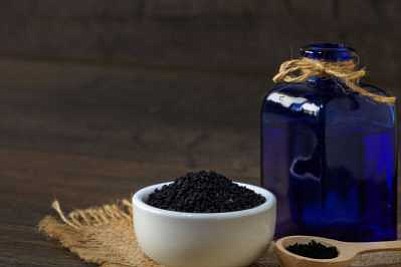Diabetic? Here’s What Black Seed Oil Can Do for You
Style Magazine Newswire | 11/9/2018, 1:15 p.m.
There’s a new power plant on the scene and it’s making moves… medically. Here’s what you need to know about the latest, yet ancient, health remedy, black seed oil.
What is black seed oil?
Also called black caraway, black cumin, black onion seed, and kalonji, black seed oil is the product of a small flowering shrub native to Eastern Europe, the Middle East, and Asia. Known as Nigella sativa, this purple or white-tinged flower produces fruits containing tiny black seeds which have been used in remedies for thousands of years.
In fact, it is believed that black seeds were found in King Tut’s tomb – cementing the importance of the age-old remedy throughout history.
What is black seed oil used for today?
An “excellent source of vitamin E, A, and B,” black seed oil aids in protecting the skin from 45 percent of the harmful UV rays, Mituri, of Nim-Véda Australia, an organic-based Ayurvedic Personal Care line, tells BlackDoctor.org.
Mituri added that it’s “a great [oil] for anyone looking to stimulate the body and recover from fatigue — it’s also enormously effective against skin conditions such as acne and psoriasis.”
What does science say?
Some of the most promising research points to Nigella Sativa as a tool to combat the effects of powerful superbugs — including tuberculosis, influenza, staphylococcus, and gonorrhea, to name a few.
Superbugs are drug-resistant bacteria – the very product of the antibiotics created to control and destroy them. Each year these drug-resistant bacteria infect more than 2 million people nationwide, killing at least 23,000, according to the U.S. Centers for Disease Control and Prevention (CDC).
But there’s more…
Black Seed Oil & Cancer
Black seed oil variations “may also assist in preventing cancer, diabetes, hair loss, obesity, various skin issues, and infections,” our expert tells us.
For example, take one study which found that thymoquinone, an active ingredient isolated from Nigella sativa, “the anti-tumor effects of thymoquinone have also been investigated in tumor xenograft mice models for colon, prostate, pancreatic and lung cancer. The combination of thymoquinone and conventional chemotherapeutic drugs could produce a greater therapeutic effect as well as reduce the toxicity of the latter.”
Black Seed Oil & Diabetes
Type 2 diabetes had a global prevalence estimate of 2.8% in the year 2000 and is projected to be 4.4% in 2030, an article published by the Journal of Endocrinology and Metabolism says. Furthermore, prevention can be tricky. So where does black seed oil come into play? Nigella sativa is one of a handful of substances on the planet believed to aid in the prevention of type 2 diabetes.
In fact, according to the findings, black seed “improves glucose tolerance as efficiently as metformin; yet it has not shown significant adverse effects and has very low toxicity.” This is major, considering metformin, commonly prescribed to treat type 2 diabetes – is known to cause a long list of side effects:
Metformin Possible Side Effects:
• Bloating
• Changes in nails/skin
• Diarrhea
• Gas
• Heartburn
• Headache
• Muscle pain
• Stomach pain
Black Seed Oil & Hypertension
Black seed oil has been proven to reduce high blood pressure. Experts say that taking black cumin seed extract for a minimum of two months has been shown to soothe hypertension in individuals whose blood pressure is mildly elevated. The same applies to high cholesterol.
What type of Black Seed Oil is best for you?
Black seed oil is a great natural addition to your health regime. With so many benefits to the body, you’ll quickly find it becoming a staple in your home and life. Remember to buy only organic, virgin, first pressed oil, to get the most out of your oil–and don’t forget to share it with your family and friends!
Bryana Holcomb is the Editor of BlackDoctor.org and graduate of the University of Illinois at Urbana Champaign. She has a Bachelor of Arts in Gender and Women’s Studies, an MBA in Management Strategy, and Life Coaching and Nutrition certifications.




